|
|
|
Sort Order |
|
|
|
Items / Page
|
|
|
|
|
|
|
| Srl | Item |
| 1 |
ID:
159134
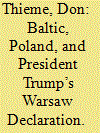

|
|
|
| 2 |
ID:
143474


|
|
|
|
|
| Publication |
Massachusetts, Center for International Studies, 1980.
|
| Description |
67p.pbk
|
|
|
|
|
|
|
|
|
|
|
|
Copies: C:1/I:0,R:0,Q:0
Circulation
| Accession# | Call# | Current Location | Status | Policy | Location |
| 023133 | 330.95195/GRI 023133 | Main | On Shelf | General | |
|
|
|
|
| 3 |
ID:
105694


|
|
|
| 4 |
ID:
073240


|
|
|
| 5 |
ID:
123651
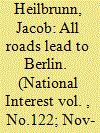

|
|
|
|
|
| Publication |
2012.
|
| Summary/Abstract |
BACK IN November 2011, as Europe struggled with its ongoing financial crisis, Poland's foreign minister, Radek Sikorski, gave a speech in Berlin that beckoned toward his country's western neighbor and pleaded with it to save the euro. "You know full well that nobody else can do it," said Sikorski. "I will probably be the first Polish foreign minister in history to say so, but here it is: I fear German power less than I am beginning to fear German inactivity. You have become Europe's indispensable nation."
|
|
|
|
|
|
|
|
|
|
|
|
|
|
|
|
| 6 |
ID:
026539
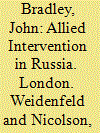

|
|
|
|
|
| Publication |
London, WeidenFeld and Nicolson, 1968.
|
| Description |
xi, 251p.: maps.Hbk
|
|
|
|
|
|
|
|
|
|
|
|
Copies: C:1/I:0,R:0,Q:0
Circulation
| Accession# | Call# | Current Location | Status | Policy | Location |
| 008374 | 940.542147/BRA 008374 | Main | On Shelf | General | |
|
|
|
|
| 7 |
ID:
029218
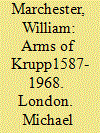

|
|
|
|
|
| Publication |
London, Michael Joseph Ltd, 1960.
|
| Description |
1053p.Hbk
|
|
|
|
|
|
|
|
|
|
|
|
Copies: C:1/I:0,R:0,Q:0
Circulation
| Accession# | Call# | Current Location | Status | Policy | Location |
| 002104 | 929.2/MAN 002104 | Main | On Shelf | General | |
|
|
|
|
| 8 |
ID:
119610
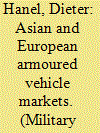

|
|
|
|
|
| Publication |
2012.
|
| Summary/Abstract |
With the start of the 21st century, the armed forces in Asia and Europe have been facing new demands as a result of radical changes in the security situation. In the foreseeable future, it is extremely unlikely that mentioned states will be threatened existentially by large - scale aggression using conventional means. Yet, safeguarding security and stability in both regions after the end of the Cold War and the need to meet global commitments for more exacting international conflict prevention and crisis management are leading to new tasks and demands placed on the Armed Forces.
|
|
|
|
|
|
|
|
|
|
|
|
|
|
|
|
| 9 |
ID:
128987
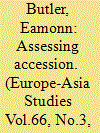

|
|
|
|
|
| Publication |
2014.
|
| Summary/Abstract |
On 1 May 2014, the European Union (EU) celebrated the tenth anniversary of the accession of ten member states-Cyprus, Czech Republic, Estonia, Hungary, Latvia, Lithuania, Malta, Poland, Slovakia and Slovenia. Of these ten new members, eight were Central and East European (CEE) countries that had, for most of the twentieth century, been governed by communist regimes either as republics of the Soviet Union (Latvia, Lithuania and Estonia), satellite states of the Soviet Union (Poland, Hungary, Czech Republic, Slovakia) or as a constituent republic of Yugoslavia (Slovenia). In the subsequent ten years three additional post-communist countries have acceded to the EU (Romania and Bulgaria in 2007 and Croatia in 2013). Commenting on the 2004 EU accession of the first eight former communist countries, the then Irish Prime Minister and President of the European Council, Bertie Ahern, wrote that there was
a particular historical resonance as eight of the former communist countries in the east have emerged from the shadows of the Iron Curtain to join us in working for common goals and for mutual benefit. The artificial divisions, which have blighted our continent's history for so long, are finally being laid to rest.1
|
|
|
|
|
|
|
|
|
|
|
|
|
|
|
|
| 10 |
ID:
075298
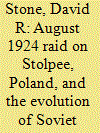

|
|
|
|
|
| Publication |
2006.
|
| Summary/Abstract |
In August 1924, a Soviet-sponsored raid on the Polish town of Stolpce to free two imprisoned communist activists went badly wrong. Though the ruling Politburo had not authorized this raid, the public embarrassment and diplomatic consequences led the Soviet government to overhaul its program of ‘active intelligence’, halting peacetime attacks on neighboring states in favor of quieter preparations for wartime sabotage and diversion under the authority of the Red Army's Intelligence Directorate. At the same time, the Politburo organized stay-behind groups in Soviet border regions to prepare for the possibility of enemy occupation.
|
|
|
|
|
|
|
|
|
|
|
|
|
|
|
|
| 11 |
ID:
120667
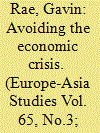

|
|
|
|
|
| Publication |
2013.
|
| Summary/Abstract |
Although liberalism has been the dominant economic ideology in post-communist Poland, liberal parties have tended to struggle to win political majorities. After winning the 2011 parliamentary elections, Citizens' Platform (Platforma Obywatelska) became the first party in Poland's democratic history to win two consecutive elections. Despite its liberal ideological background, Platforma Obywatelska took a more pragmatic and cautious approach to economic policy, avoiding the introduction of strong austerity economic policies. This paper considers the debate within the liberal camp about Platforma Obywatelska's economic policies, with particular reference to the reform of pensions. It also looks at the plans of the government for more strident liberal economic reforms in its second term, at what impact these will have on the popularity of Platforma Obywatelska and at how this reflects a tension between the party's pragmatic concerns of government and commitment to liberal ideology.
|
|
|
|
|
|
|
|
|
|
|
|
|
|
|
|
| 12 |
ID:
096240
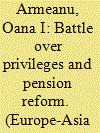

|
|
|
|
|
| Publication |
2010.
|
| Summary/Abstract |
Pension reform is among the most economically pressing and politically controversial issues worldwide. Numerous countries have achieved noteworthy results, but for others overcoming opposition to reform remains an elusive task. This article argues that opposition does not necessarily come from the left, but also from parties connected with privileged occupational groups. Focusing on a distinction between the diffuse and concentrated costs of reform, the article analyses the formation of pro-reform and anti-reform coalitions in a two-dimensional space and discusses how particular configurations of the party system relate to reform outcomes and sustainability. The argument is tested using legislative roll call data from Poland.
|
|
|
|
|
|
|
|
|
|
|
|
|
|
|
|
| 13 |
ID:
099638
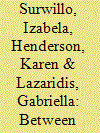

|
|
|
|
|
| Publication |
2010.
|
| Summary/Abstract |
Three main factors explain public support for EU membership: utilitarian expectations, the role of values and ideas, and class partisanship. In the Polish case, public opinion polls and issues more specific to Poland, such as the role of the Catholic Church, populist political parties and profound Euroscepticism among farmers, suggest that although these theoretical explanations overlap, each of them has a different explanatory value. The economic approach remains the best predictor of support for EU membership, and whereas values and identity are closely linked to and dependent upon economic expectations, the impact of national politics appears largely decoupled from Polish Euroscepticism.
|
|
|
|
|
|
|
|
|
|
|
|
|
|
|
|
| 14 |
ID:
050890
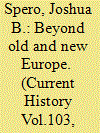

|
|
|
| 15 |
ID:
101869
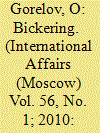

|
|
|
|
|
| Publication |
2010.
|
| Summary/Abstract |
WHY DO RUSSIA AND POLAND remain in an antagonistic embrace for far too long, and in defiance of common sense? Why are the past mistakes still alive? What is behind this and who is the gainer? This is not idle curiosity: the questions should be answered. Indeed, Russia's relations with Poland's EU and NATO neighbors are good or even model, to borrow an expression from our recent past.
|
|
|
|
|
|
|
|
|
|
|
|
|
|
|
|
| 16 |
ID:
127869
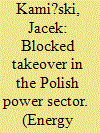

|
|
|
|
|
| Publication |
2014.
|
| Summary/Abstract |
As the President of the Office of Competition and Consumer Protection refused to approve a government initiated takeover in the Polish power sector and the Court of Competition and Consumer Protection did not make a ruling on that case, the takeover was finally prohibited. In this context, the main aim of this paper is to carry out a quantitative analysis of the impact of the takeover in question on electricity prices and quantities, consumer and producer surpluses, dead weight loss and emissions. The scope of the study covers the Polish power generation sector and the analysis was carried out for 2009. A game theory-based electricity market equilibrium model developed for Poland was applied. The model includes several country-specific conditions, such as a coal-based power generation fuel-mix, a large share of biomass co-combustion, etc. For the sake of clarity, only four scenarios are assumed. The paper concludes that the declared synergy savings did not compensate for the increase in dead weight loss and the transfer of surplus from consumers to producers caused by increased market power.
|
|
|
|
|
|
|
|
|
|
|
|
|
|
|
|
| 17 |
ID:
032356
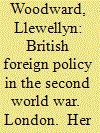

|
|
|
|
|
| Publication |
London, Her Majesty's Stationery Office, 1962.
|
| Description |
lvi, 596p.Hbk
|
| Series |
History of the Second World War
|
|
|
|
|
|
|
|
|
|
|
|
Copies: C:1/I:0,R:0,Q:0
Circulation
| Accession# | Call# | Current Location | Status | Policy | Location |
| 010870 | 940.54/WOO 010870 | Main | On Shelf | General | |
|
|
|
|
| 18 |
ID:
109102
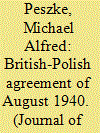

|
|
|
|
|
| Publication |
2011.
|
| Summary/Abstract |
The article discusses the August, 1940 financial and legal arrangement negotiated by the Polish and British Governments regarding the Polish Armed Forces based in the United Kingdom and its possessions. The agreement stipulated that the British Government credits for the Polish military, as well as for the support of the Polish diplomatic and civilian personnel, would be based on the escrow of the Polish Gold evacuated from Poland and to be repaid after the war. The legal and financial agreements that were signed in August 1940, and modified throughout the war, document that the Polish Armed Forces were a sovereign military under the constitutional control of the Polish Government in exile. This historical fact has been eroded by time and the consequences to the Polish cause of the outcome of the war. This article attempts to address the mythologies that have spawned, about the Polish Forces, often well meaning but erroneous nonetheless. The article concludes with a summary of the final auditing of expenses in 1946 when the Polish Gold was returned to a communist dominated Poland.
|
|
|
|
|
|
|
|
|
|
|
|
|
|
|
|
| 19 |
ID:
106280
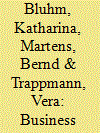

|
|
|
| 20 |
ID:
144108
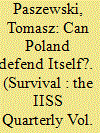

|
|
|
|
|
| Summary/Abstract |
Because of its steady insistence on the importance of NATO’s Article 5 and the credibility of security guarantees, Poland has long been perceived by its Western partners as a country whose focus on collective defence amounts to something of an obsession. One could argue that that obsession has now been vindicated by the Russian threat. Poland finds itself in the spotlight, and is expected to play a pivotal role on NATO’s threatened northeastern periphery.
|
|
|
|
|
|
|
|
|
|
|
|
|
|
|
|
|
|
|
|
|